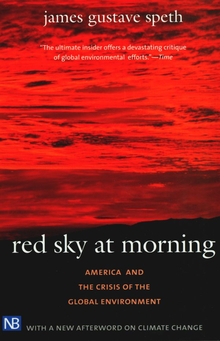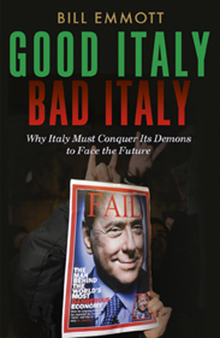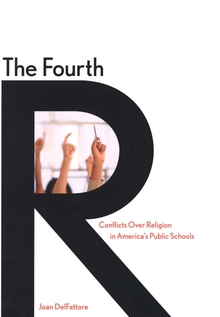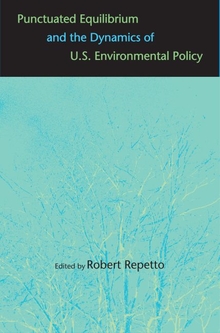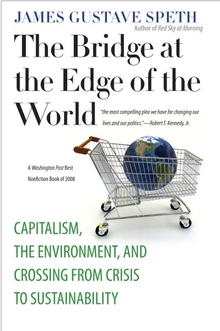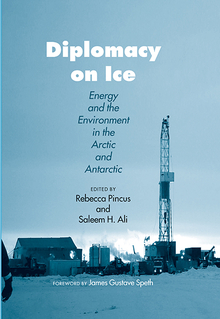Red Sky at Morning
WARNING
You are viewing an older version of the Yalebooks website. Please visit out new website with more updated information and a better user experience: https://www.yalebooks.com
America and the Crisis of the Global Environment
Second Edition
James Gustave Speth; With a new afterword on climate change
Why we are failing to protect the global environment. What we can—and must—do to succeed.
This book will change the way we understand the future of our planet. It is both alarming and hopeful. James Gustave Speth, renowned as a visionary environmentalist leader, warns that in spite of all the international negotiations and agreements of the past two decades, efforts to protect Earth’s environment are not succeeding. Still, he says, the challenges are not insurmountable. He offers comprehensive, viable new strategies for dealing with environmental threats around the world.
The author explains why current approaches to critical global environmental problems—climate change, biodiversity loss, deterioration of marine environments, deforestation, water shortages, and others—don’t work. He offers intriguing insights into why we have been able to address domestic environmental threats with some success while largely failing at the international level. Setting forth eight specific steps to a sustainable future, Speth convincingly argues that dramatically different government and citizen action are now urgent. If ever a book could be described as “essential,” this is it.
James Gustave Speth is dean and professor in the practice of environmental policy and sustainable development at the School of Forestry and Environmental Studies, Yale University. He founded and was president of the World Resources Institute, co-founded the Natural Resources Defense Council, served as adviser on environmental issues for Presidents Carter and Clinton, and was chief executive officer of the United Nations Development Programme. For his role in bringing the global warming issue to wide public attention, Speth was recently awarded the prestigious Blue Planet Prize.
"A wide-ranging, powerful argument. This book has enormous credibility—it’s the firsthand report of the American who’s been closest to the front lines at one negotiation after another."—Bill McKibben, author of The End of Nature
“Part 4-The Transition makes this book ideal because it gives ideas for solutions, not just—as many environmental books—that the sky is falling!”—Bruce C. Coull, Dean, School of the Environment, University of South Carolina
"A superb, authoritative guide to the state of the global environment, Red Sky at Morning warns of the urgent need for personal, political, and global action to ensure the future of natural systems and human survival. Gus Speth illustrates the magnitude of the challenge and also offers wide-ranging and innovative solutions."— Frances Beinecke, Executive Director, Natural Resources Defense Council
"Gus Speth has played a leading role on the environmental stage for over thirty years. Drawing from his remarkable range of experiences, he provides in Red Sky at Morning an insightful, balanced, and well-crafted assessment of global environmental challenges. If you’re looking for the best concise, user-friendly treatment of international environmental policy on the market, if you want to understand how we got to our present state and what the future may hold, then read this book."—Professor James Salzman, Emalee C. Godsey Scholar, Washington College of Law, American University
"Gus Speth brought global environmental concerns to the world’s attention nearly a quarter of a century ago. His extraordinary new book is an impassioned plea to take these issues seriously before it is too late. We owe it to our children and grandchildren to read Red Sky at Morning and take action while we can."— Jimmy Carter, former president of the United States
"Red Sky at Morning is an environmental tour de force—a penetrating look at why efforts to halt environmental degradation have failed and a compelling vision for what we must do about it."—Kathryn S. Fuller, President & CEO, World Wildlife Fund
"In Red Sky at Morning, Gus Speth pulls no punches. He shows exactly why and how our international institutions are not up to the task: global environmental deterioration is outpacing the speed at which we are making the necessary transition to sustainability. Speth spells out what each of us needs to do—and quickly!"—Lawrence Susskind, Ford Professor of Urban and Environmental Planning, MIT
"Red Sky is an excellent synthesis of the work and ideas of many environmentalists, environmental scientists, and political leaders who have worked on environmental issues over the last few decades. Gus Speth’s principal point is that business-as-usual is not working. I couldn’t agree more. Red Sky is an engaging read."—Lester Brown, President, Earth Policy Institute
“One of the finest environmental books of the past decade. . . . Should be read by anyone concerned with human futures.”—Peter Raven, director, Missouri Botanical Garden; former president, American Association for the Advancement of Science
"An extremely important and authoritative book. Gus Speth is one of the few people who has the credentials to integrate the scientific aspects of environmental decline with analysis of possible political solutions, and he does so brilliantly."—Simon Levin, Princeton University, and author of Fragile Dominion
"A brilliantly insightful and extraordinarily useful book. . . . Red Sky at Morning is a clarion call for changes in the behavior of individuals and institutions that will lead to an environmentally sustainable, economically equitable, and socially peaceful world society, in which all of the basic human needs and an equitable share of human ’wants’ can be met for every individual in present and future generations while maintaining a healthy, physically attractive and biologically productive environment. This vision is now within reach."—Thomas F. Malone, American Scientist
"A lively, conversational and yet very substantial examination of the failures of global environmental governance to date and an exploration of prospects for the future of the global environment.”—America–The National Catholic Weekly
“Call to action books about environmental issues must strive for balance. They must sound the alarm, Silent Spring-style, loudly enough to get readers motivated (i.e. frightened); but, on the other hand, they must remain optimistic enough to prevent feelings of futility from morphing into lethargy. . . . It also helps to include specific suggestions for action. This book meets all of those challenges beautifully.”—Booklist (starred review)
“An important new book … in Red Sky at Morning, Speth traces the emergence of an environmental consciousness over the past 40 years and asks a question we must all face in the 21st century: When is enough, enough?—Chemical and Engineering News
“Speth weights his book toward solutions, proposing sensible alterations. . . . His ‘resources for citizens’ chapter, brimming with contact information and Internet sites, shows how individuals—without waiting for governments—can confront global environmental threats.”—Christian Century
“An excellent introductory text for politicians, foundation directors and other policymakers.”—Conservation in Practice
“This book would be an excellent introductory text for politicians, foundation directors, and other policymakers.”—Conservation in Practice
“Speth explains clearly and succinctly how and why most attempts at international environmental protection have failed (far too often because of American resistance). He also provides practical, feasible, necessary steps that can turn the situation around. He hopes the book will be widely read by young people. I hope it will be widely read by everybody.”—Earthjustice
“Buy this book . . . then buy copies for your parents, your children, teachers in your local schools, and your local library. Better yet, buy copies for your local, state, and federal representatives and senators. Send copies to the White House. Work at getting people . . . back to reality.”—Aaron M. Ellison, Ecology
“Red Sky at Morning . . . is a ‘must read’ according to many in the ecumenical community who are working to protect God’s creation.”—Eculink
“Speth . . . commands respect from having spent much of his career deep in the belly of the whale. . . . As Red Sky at Morning warns, unless present trends are soon slowed, our grandchildren and succeeding generations stand gravely threatened.”—Environment
“In a remarkably clear, candid, and courageous new book, James Gustave Speth documents both the continued deterioration of the global environment and the failure of the international community to respond forcefully and effectively to that deterioration.”—Douglas A. Kysar, Environmental Affairs
“A remarkably clear, candid and courageous new book.”—Environmental Affairs Law Review
"Throughout the book, Speth demonstrates that he knows his subject in depth. . . . [An] unusually persuasive book."—Norman Myers, Environmental Conservation
“If you want to know how you as a citizen can help make conservation happen, read the chapter on Resources for Citizens at the end of this valuable book.”—Environmental Forum
“Gus Speth’s book is . . . alarming and visionary at the same time. It is an important and authoritative book on a looming global disaster—and on how to avoid it. If books can change the way we understand the future of our planet, this book will.”—Udo E. Simonis, Environmental Values
“Should be read by every citizen of Earth.”—Alan Bisbort, Hartford Advocate
“Speth’s analysis is urgent and comprehensive, and his prescriptions are well-considered.”—Issues in Science and Technology
“Speth has written an extraordinary book. . . . Red Sky is sobering and devastating, but it is also a balanced and thoughtful clarion call, wide-ranging and lucid–and ultimately inspiring.”—Stephen Hesse, “Speth has written an extraordinary book. . . . Red Sky is sobering and devastating, but it is also a balanced and thoughtful clarion call, wide-ranging and lucid–and ultimately inspiring.”—Stephen Hesse, Japan Times
"A prodigious work of impressive scope and pragmatism." —William T. Hipwell, Journal of International Wildlife Law and Policy
"This is an important book both for those readers whose principal area of interest is the environment and for those for whom environmental concerns are subsidiary."—Ira Sohn, Natural Resources Forum
“[Speth] is intelligent on thorny issues such as the links between globalisation and the environment. And he is coruscating about fraudulent philosophies like FROG, or First Raise Our Growth, which hold that environmental action should always be put off because it might impede the economic growth that will pay for the clean-up. ‘Big trouble is coming down the pike,’ he says.”—Fred Pearce, New Scientist
“The perfect antidote to apathy. . . . Speth offers a rational way out, and writes well.”—Maggie McDonald, New Scientist
“Red Sky at Morning is a particularly useful summary of the ecological situation. . . . [A] careful and judicious book. ”—Bill McKibben, New York Review of Books
“A profoundly sobering study, by an environmental advisor to President Carter and Clinton, of the nation’s failure to address the probability of global warming both in the past, when there might have been time, and now, when there may not.”—New York Times Book Review
“Speth sounds almost nostalgic for the days when the environmental crisis was all about aerosol sprays, factory smokestacks, and PCBs in the riverbed. Today, as he stresses, the crisis is global. . . . Forty years after Silent Spring, we may be facing a long, hot summer.”—New Yorker
“This beautifully conceived and executed book is a must read for anyone aspiring to insights into the human condition in the age of globalism—politicians, scientists, journalists, teachers, and citizens, all of whom must now join in generating a new, effective global polity that recognizes and protects the essential biotic function of the only human habitat. Survival depends on it.”—Dean E. Abrahamson, onearth
“I am particularly impressed with the list of references that seems to be almost complete! These references will serve as a great reading list for students, professors, or citizens who want to probe deeper into the subject.On an academic level, this book can be used as the framework to organize the course and then use the references for additional reading. . . . This is a ‘must-read’ for all beginning environmentally concerned citizens.”—Venkat Lakshmi, Quarterly Review of Biology
“Speth’s proposal for a new organization appears as a logical necessity, borne out of humanity’s experience in dealing with nature. Red Sky at Morning is a most readable and altogether fine book. I can only hope it becomes a most influential one.”—Partha Dasgupta, Science
“Speth, dean of the School of Forestry and Environmental Studies at Yale University and former advisor to two presidents, reports on the state of global environmental affairs. . . . Speth offers a blueprint for addressing population growth, climate change, and destruction of habitat. . . . The United States, he argues, has the most at stake and should be leading this change instead of ignoring the problems that exist.”—Science News
“Speth, dean of the School of Forestry and Environmental Studies at Yale University and former advisor to two presidents, reports on the state of global environmental affairs. . . . Speth offers a blueprint for addressing population growth, climate change, and destruction of habitat. . . . The United States, he argues, has the most at stake and should be leading this change instead of ignoring the problems that exist.”—Science News
“An indictment of US complicity in despoiling the Earth. A remarkably well-researched and well-documented warning of potential global disaster. Needs to be widely read and heeded.”—Seattle Times
“A terrific, cutting-edge look at the future of the Earth that everyone should read. . . . It’s a passionate plea for action and involvement backed up by a wealth of statistics, up-to-the-minute information, and a complete resource guide readers can use to get more done faster. If you’d like to be a part of that necessary change, we’d advise you start by reading this new book as quickly as you can.”—Seventh Generation
“In the tradition of Rachel Carson’s Silent Spring, the book cautions that rapid population growth, destruction of natural habitats and use of fossil fuels will result in not only global warming but a global wasteland—unless the world’s nations abandon empty treaties and conferences, and adopt policies to keep our planet clear and evergreen.”—Sky Magazine
“In his new book, James Gustave Speth offers a brief, lucid, illuminating guide to the causes of our parlous situation, why past efforts to address it have failed, and what changes would be necessary to head off disaster. Warning that the hour is late, Speth challenges the conventional approaches of reformers and the faith of free-market fundamentalists. . . . Speth provides a crisp and convincing account.”—The American Prospect
“Speth “is not your run-of-the-mill environmental Cassandra. On the contrary, Mr. Speth is a thoughtful and well-informed observer of the environmental scene, and his book is a balanced and pragmatic look at the topic. . . . He offers up a number of suggestions for improving ‘global environmental governance’ arising from his decades of experience. His proposals are mostly sensible ones. Importantly, they are informed by the notion that mankind must balance the needs of the world’s poorest with concerns about nature. . . . Unlike many greens, he is no Luddite. Mr Speth clearly understands the power of human ingenuity and calls for measures to encourage the development and use of clean new technologies. . . . In part by unleashing market forces, Speth makes a compelling case for stripping away perverse subsidies and introducing market-based regulatory approaches like emissions trading. . . . [A] thought-provoking book by one of the grand old men of greenery.”—The Economist
“Red Sky at Morning . . . has the quiet, seething tone of an insider who believed in the system but witnessed only steady decline. . . . Speth either created or ran many of the most important environmental institutions of the past 30 years, including the National Resources Defense Council, the White House Council on Environmental Quality and the U.N. Development Program. . . . Speth meticulously chronicles decades of missed opportunities . . . [while leavening] this detailed history with dry asides.”—Eugene Linden, Time Magazine
“Speth’s is a profound analysis that engages with mind and soul. . . . A pacey, well-written account. . . . For a popular readership Speth’s treatment is excellent and the best starting place.”—Mike Hulme, Times Higher Education Supplement
“Why haven’t enviros and governments been able to build on [early successes]? There are scores of case-by-case factors, Speth explains, but none more crucial than the United States shirking its leadership role.”—Washington Post
Winner of the 2005 Connecticut Book Award in the nonfiction book category.
Publication Date: March 11, 2005

